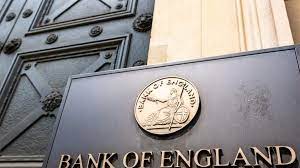Monitoring Desk
LONDON: Britain’s annual inflation rate unexpectedly remained at 8.7 percent in May, official data showed Wednesday, piling pressure on the Bank of England and government to act over soaring prices.
Markets had forecast a drop from April’s level, while the BoE was already widely expected to raise interest rates again Thursday to combat an inflation rate which is the highest among G7 nations.
The latest data is a blow also for Prime Minister Rishi Sunak, who has made cutting inflation a priority for his Conservative government heading into a general election next year.
UK inflation had been expected to cool to 8.4 percent last month while core inflation, which strips out food and energy costs, unexpectedly jumped to 7.1 percent in May.
“These numbers warn that inflationary pressures in the UK are not under control and call for further rate hikes which will further squeeze the British households,” noted Ipek Ozkardeskaya, senior analyst at Swissquote Bank.
The BoE has already lifted borrowing costs to a 15-year high at 4.5 percent in a bid to cool inflation.
This is set to rise further Thursday following a regular policy meeting in what would be the central bank’s 13th rate increase in a row.
“We know how much high inflation hurts families and businesses across the country,” finance minister Jeremy Hunt said following the latest consumer prices index data.
The government wants to see inflation reduced to five percent by the end of the year, which would be around half the level at the start of 2023.
“Despite a modest easing in food price inflation, headline inflation remains at high levels,” noted Yael Selfin, chief economist at KPMG UK.
“More worryingly for the Bank of England, strong core inflation suggests that firms may now be passing on the rising costs from higher wage bills to consumers.”
Britain has endured months of strikes by workers demanding higher wages to help with the cost-of-living crisis.







